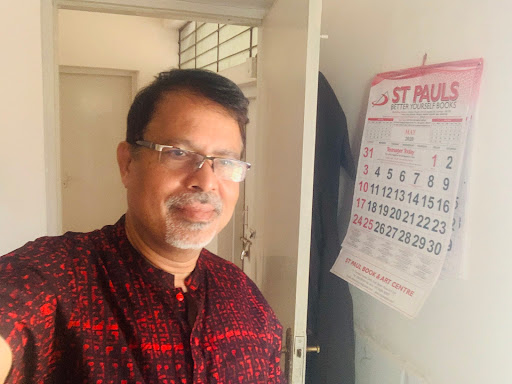Let us welcome the encouragement that the Pope offers us to see ourselves and the world with the eyes of Christ and to remain concerned about it.
- I want to say one word to you and this word is “joy”. Wherever there are consecrated people, seminarians, men and women religious, young people, there is joy, there is always joy! It is the joy of freshness, the joy of following Jesus; the joy that the Holy Spirit gives us, not the joy of the world. There is joy! but – where is joy born?(72)
- Look into the depths of your heart, look into your own inner depths and ask yourself: do you have a heart that desires something great, or a heart that has been lulled to sleep by things? Has your heart preserved the restlessness of seeking or have you let it be suffocated by things that end by hardening it? God awaits you, he seeks you; how do you respond to him? Are you aware of the situation of your soul? Or have you nodded off? Do you believe God is waiting for you or does this truth consist only of “words”?(73)
- We are victims of this culture of the temporary. I would like you to think about this: how can I be free, how can I break free from this “culture of the temporary”?(74)
- This is a primary responsibility of all adults, of formators: to set an example of consistency to the youngest. Do we want consistent young people? Are we consistent? On the contrary, the Lord will say to us what he said to the People of God about the Pharisees: “Do what they say but not what they do!” Consistency and authenticity!(75)
- We may ask ourselves: am I anxious for God, anxious to proclaim him, to make him known? Or do I allow that spiritual worldliness to attract me which impels people to do everything for love of themselves? We consecrated people think of our personal interests, of the functionality of our works, of our careers. Well, we can think of so many things... Have I, so to speak, made myself ‘comfortable’ in my Christian life, in my priestly life, in my religious life, and also in my community life? Or do I retain the force of restlessness for God, for his Word that makes me “step out” of myself towards others?(76)
-
- Do we feel the restlessness of love? Do we believe in love for God and for others? Or are we unconcerned by this? Not in an abstract manner, not only in words, but the real brother we come across, the sister who is beside us! Are we moved by their needs or do we remain closed in on ourselves, in our communities which are often “comfortable communities” for us?(77)
- This is a beautiful, beautiful way to holiness! Do not speak badly of others. “But father, there are problems...”. Tell the superior, tell the Bishop, who can rectify them. Do not tell a person who cannot help. This is important: brotherhood! But tell me, would you speak badly of your mother, your father, your siblings? Never. So why do you do so in the consecrated life, in the seminary, in your priestly life? Only this: think, think... Brotherhood! This brotherly love.(78)
-
- At the foot of the Cross, Mary is at the same time the woman of sorrow and of watchful expectation of a mystery far greater than sorrow, which is about to be fulfilled. It seemed that everything had come to an end; every hope could be said to have been extinguished. She too, at that moment, remembering the promises of the Annunciation could have said: they did not come true, I was deceived. But she did not say this. And so she who was blessed because she believed, sees blossom from her faith a new future and awaits God’s tomorrow with expectation. At times I think: do we know how to wait for God’s tomorrow? Or do we want it today? For her the tomorrow of God is the dawn of Easter morning, the dawn of the first day of the week. It would do us good to think, in contemplation, of the embrace of mother and son. The single lamp lit at the tomb of Jesus is the hope of the mother, which in that moment is the hope of all humanity. I ask myself and I ask you: is this lamp still alight in monasteries? In your monasteries are you waiting for God’s tomorrow?(79)
-
- The restlessness of love is always an incentive to go towards the other, without waiting for the other to manifest his need. The restlessness of love gives us the gift of pastoral fruitfulness, and we must ask ourselves, each one of us: is my spiritual effectiveness healthy, is my apostolate fruitful?(80)
-
- An authentic faith always involves a profound desire to change the world. Here is the question we must ask ourselves: do we also have great vision and impetus? Are we also daring? Do our dreams fly high? Does zeal consume us (cf. Ps 68:10)? Or are we mediocre and satisfied with our “made in the lab” apostolic programmes?(81)







No comments:
Post a Comment